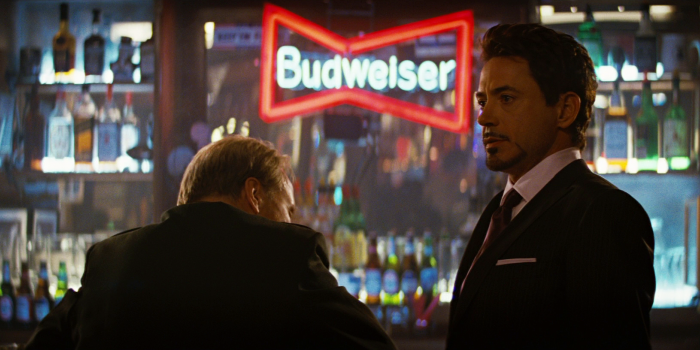
Director: Jehane Noujaim
Country: Egypt | USA
Genre: Documentary
Official Trailer: Here
“The people demand the downfall of the regime” is the tagline dominating the poster for The Square in increasingly prominent typeface, like the ever-growing chant of the Egyptian protesters who gathered in Tahrir square in 2011. How appropriate to speak of public demand: this documentary is the latest step in Netflix’s calculated move into original programming, a smart series of commissions and acquisitions channelling the data-driven image of what viewers would like to watch into productions they can, right now. Where earlier iterations of this process have thrown up crowd-pleasing trifle like The Short Game, The Square—like House of Cards—is evidence of exactly how Netflix’s meticulous method needn’t necessarily make for a safe bet at the expense of quality material, having already netted—like House of Cards—major awards acclaim.
The Square has the curious effect of placing us palpably in the midst of this madness yet all the while offering us an overarching omniscience.
 All of which is but a commercial curio beside the film itself, which with a startling immediacy thrusts us into the frantic chaos of political overhaul and public outcry, viscerally manifesting the on-the-ground mania of an Egypt in-flux while exercising an extraordinary directorial control. Noujaim has done something special here, lending her film a poetic power without ever undermining the urgency the material demands; The Square has the curious effect of placing us palpably in the midst of this madness yet all the while offering us an overarching omniscience. Fitting, for a film concerned with the way in which history repeats itself: Noujaim’s approach allows us at once a cynical sadness for the way of the world while placing us right in the belly of the beast where hope is the strongest.
All of which is but a commercial curio beside the film itself, which with a startling immediacy thrusts us into the frantic chaos of political overhaul and public outcry, viscerally manifesting the on-the-ground mania of an Egypt in-flux while exercising an extraordinary directorial control. Noujaim has done something special here, lending her film a poetic power without ever undermining the urgency the material demands; The Square has the curious effect of placing us palpably in the midst of this madness yet all the while offering us an overarching omniscience. Fitting, for a film concerned with the way in which history repeats itself: Noujaim’s approach allows us at once a cynical sadness for the way of the world while placing us right in the belly of the beast where hope is the strongest.
And oh how brilliantly she has captured that hope, forging her film around a choice selection of protestors who comprise the scope of the political and personal stakes of this revolution. And like the square itself, which became a bonhomous symbol of all the new Egypt could be, the movie views each of its subjects with an equal eye, just as focused on the experience of a member of the much-maligned Muslim Brotherhood as an idealistic young man with an uncanny ability to rouse a crowd. The rift that develops between the two as the ousted president Mubarak is replaced by the Brotherhood—politically problematic in opposite but equal ways—is the foremost example of Noujaim’s ability to use these particularities to present the overall picture.
The Square is less concerned with the new Egypt that will arise at the end than she is in studying the people who will be remembered as those who built it, their unflinching optimism in the face of broken promises and dashed dreams.
 That the movie plays almost like a well-tailored narrative piece is testament to the work of the five credited editors, who have forged beauty from chaos. There’s an unlikely allure to the aesthetic, too; even fleeing on foot from the encroaching attacks of army “peacekeepers”, Noujaim’s images bear a clarity reflective of the unclouded vision she’s given us of this strife. There’s no telling from the material itself that the final third is ostensibly an addendum, shot after the movie’s premiere at Sundance last year when the ongoing protests led Noujaim to think it incomplete; for a portrait of a situation that still continues to unfold, The Square is a film that never feels anything less than complete.
That the movie plays almost like a well-tailored narrative piece is testament to the work of the five credited editors, who have forged beauty from chaos. There’s an unlikely allure to the aesthetic, too; even fleeing on foot from the encroaching attacks of army “peacekeepers”, Noujaim’s images bear a clarity reflective of the unclouded vision she’s given us of this strife. There’s no telling from the material itself that the final third is ostensibly an addendum, shot after the movie’s premiere at Sundance last year when the ongoing protests led Noujaim to think it incomplete; for a portrait of a situation that still continues to unfold, The Square is a film that never feels anything less than complete.
That, perhaps, is because this is less a documentary about the product than the process: The Square is less concerned with the new Egypt that will arise at the end than she is in studying the people who will be remembered as those who built it, their unflinching optimism in the face of broken promises and dashed dreams. “As long as there’s a camera, the revolution will continue,” states a protestor at one point, attesting exactly the essential role that movies like this have to play in evidencing the on-the-ground reality of situations like these. “I took this video so that people know what really happened,” a character says in the Egyptian narrative feature Rags and Tatters, one of the many movies to attempt to make sense of the country’s situation. With The Square, Noujaim has done that and more: this is a movie that shows us not only what happened, but how it felt, an essential historical document that makes us petrified participants, the better to appreciate the enormity of all we see.
[notification type=”star”]83/100 ~ GREAT. The Square is an essential historical document that makes us petrified participants, the better to appreciate the enormity of all we see.[/notification]




Pingback: Harvey Sippy()
Pingback: Doppler Color()
Pingback: best products online()
Pingback: chapter 7 bankruptcy harrisburg()
Pingback: porno()
Pingback: best fat burning foods()
Pingback: More hints()
Pingback: Abdul Toboz()
Pingback: Best buy cell phone accessories()
Pingback: bikiniluxe promo code()
Pingback: movie2k()
Pingback: t shirt league of legends()
Pingback: Back links()
Pingback: valentines day dinner()
Pingback: shy amateur wife in a essay threesome()
Pingback: Escort()
Pingback: teacher fuck student app()
Pingback: sacred 3 trainer()
Pingback: poker()
Pingback: th8 base layout()
Pingback: Schluesseldienst Berlin()
Pingback: this()
Pingback: meaning of arlo()
Pingback: a fantastic read()
Pingback: Tammie()
Pingback: hack my singing monsters()
Pingback: boom beach apk hack()
Pingback: guitar picks()
Pingback: Drawing For Kids()
Pingback: sales training singapore()
Pingback: british used clothing()
Pingback: 5 gallon bottle dispenser()
Pingback: mejor agencia de publicidada malaga()
Pingback: Debarpan()
Pingback: Glennis()
Pingback: cat care in naples()
Pingback: Microcap()
Pingback: take home pay calculator()
Pingback: movietube()
Pingback: w sellers()
Pingback: consignment shops jackson mi()
Pingback: Brittni()
Pingback: chapter 13 attorney hershey()
Pingback: car accessories rerun charlie brown()
Pingback: best nose hair trimmers()
Pingback: Cash 4 Clothes()
Pingback: tenerife estate agents()
Pingback: Cleaning Quotes()
Pingback: Alexander()
Pingback: Law Office of Peter Castellana()
Pingback: Thai Porn()
Pingback: australias worst bank()
Pingback: Thai Porn()
Pingback: icc t20 world cup 2016()
Pingback: Dia()
Pingback: best mattress 2016()
Pingback: fly swatter game rules()
Pingback: roasting pan reviews 2012()
Pingback: glam caddy rotating organizer()
Pingback: help loading uhaul truck()
Pingback: she said()
Pingback: cat kennel()
Pingback: mobile strike hack()
Pingback: core java training in pune()
Pingback: howrsehack.pl()
Pingback: sexier.com()
Pingback: Micro Stretch Gym Shorts()
Pingback: zzz zzz z()
Pingback: Workout Clothes()
Pingback: SuperGaminator Bonus()
Pingback: chwil�wki()
Pingback: small home safe()
Pingback: lovetts lovin pet and home care()
Pingback: personal viagra()
Pingback: http://keepyourhair.cba.pl/()
Pingback: porno()
Pingback: how to get ex back on sims 3()
Pingback: porno()
Pingback: best pet care in naples()
Pingback: porno()
Pingback: http://www.cicap.org/()
Pingback: Eulalio Tirado Lizarraga()
Pingback: cartoon porn comics()
Pingback: Sybil()
Pingback: naples pet sitter()
Pingback: Our Limousine service Vancouver BC office()
Pingback: no deposit bonuses�()
Pingback: Website()
Pingback: this article()
Pingback: candy saga()
Pingback: browse around here()
Pingback: Private investigator Pretoria()
Pingback: supplements that burn belly fat()
Pingback: clash royale tool hack()
Pingback: The Lost Ways()
Pingback: Obsession Phrases Examples()
Pingback: psychic source review()
Pingback: printingvip()
Pingback: chlamydia()
Pingback: https://www.youtube.com/user/tijuanthedon1()
Pingback: City professional dentists church st()
Pingback: android game cheat app()
Pingback: escorts()
Pingback: sms timer()
Pingback: sportsbook()
Pingback: grannys best natural remedies for alopecia areata()
Pingback: mauijim()
Pingback: NBA Online Stream()
Pingback: top1porn.hotcamso.pw()
Pingback: Tess and Trish()
Pingback: nordstrom coupon code()
Pingback: hackear clash of clans()
Pingback: do you agree()
Pingback: neo2 software()
Pingback: Huawei()